Requests to 2-1-1 have increased throughout Texas during COVID-19, but the size of the gains depends a lot on the type of need and region.
Texas-sized differences in rent, food, utility and health needs
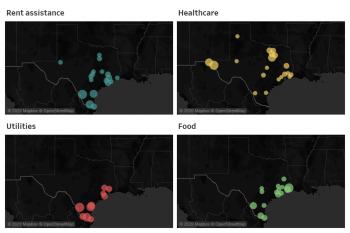

Requests to 2-1-1 have increased throughout Texas during COVID-19, but the size of the gains depends a lot on the type of need and region.
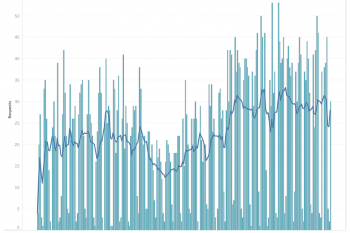
After avoiding trips to the doctor in the early months of the COVID-19 pandemic, health care visits have increased and so have requests for help paying for medical expenses. Medical expense assistance requests declined in the first two months of the pandemic, but since then they have risen nearly 60 percent and are now well above pre-COVID levels.
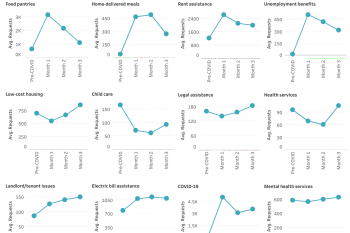
Three months into the COVID-19 pandemic, requests to 2-1-1s in the U.S. are trending up for child care, low-cost housing, landlord-tenant issues, legal assistance, health services and mental health services.
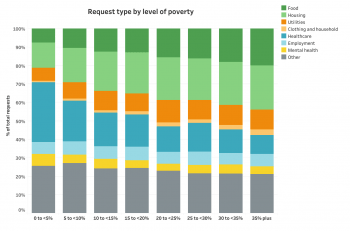
Since COVID-19, people in high-poverty neighborhoods are more likely to call 2-1-1 seeking help with food and housing while those from low-poverty neighborhoods are more likely to call about healthcare, which includes information about COVID risks, protections, symptoms and testing.
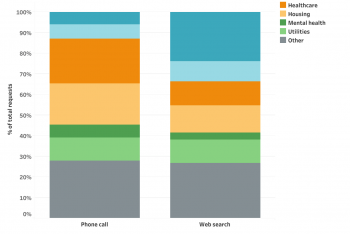
Requests to 2-1-1 can come by phone or through web searches, and new analyses suggest needs differ by modality. During COVID-19, a much larger proportion of web searches are seeking help with food, while phone requests are more likely to focus on housing, healthcare and mental health needs.
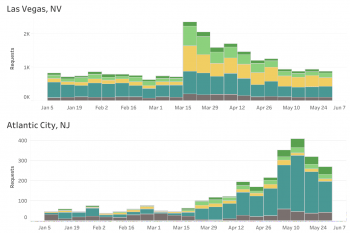
COVID-19 has been economically devastating to the leisure and hospitality industries and many people who work in them. Popular tourist destinations such as Las Vegas, NV, Atlantic City, NJ and Myrtle Beach, SC have seen dramatic increases in 2-1-1 calls since COVID-19 was declared a pandemic.
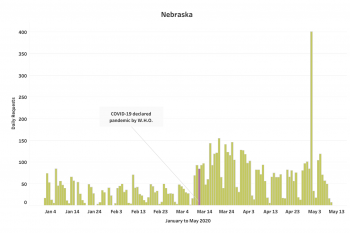
Up, then down, then up again. Requests to 2-1-1 started rising again in a second wave of calls. This may be due to the large number of coronavirus outbreaks in the state related to meat packing plants.
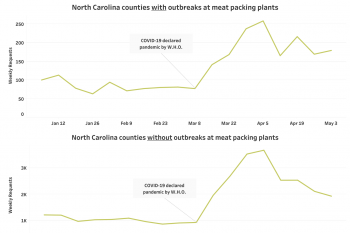
In North Carolina, counties with COVID-19 outbreaks linked to meat packing plants are experiencing a second wave of needs for food, housing and healthcare.
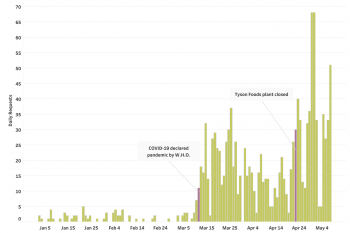
In Black Hawk County, Iowa, calls to 2-1-1 for housing, food and health care needs tripled as the pandemic began. Then a COVID-19 outbreak closed the county’s Tyson Foods’ pork packing plant. The resulting second surge was even bigger than the first.